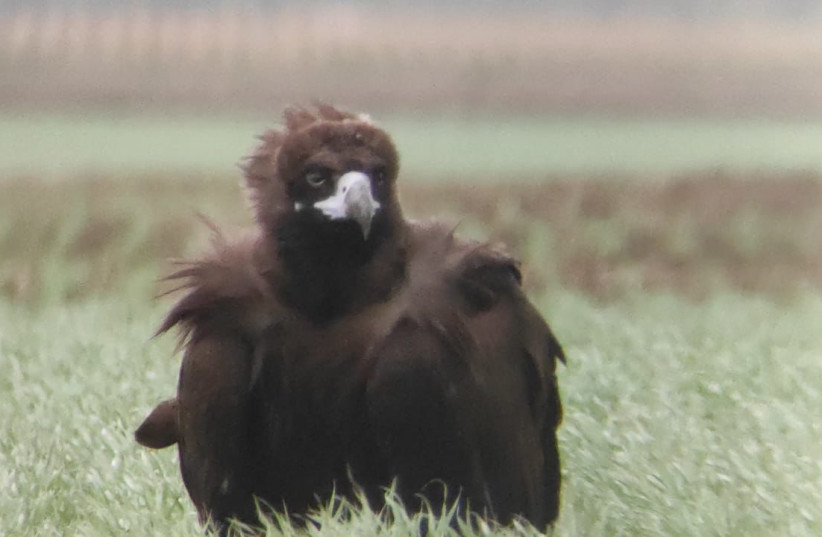Being held captive during one’s early development – if you’re a bird – can improve life experiences and performance, according to ornithologists at the Ben-Gurion University of the Negev (BGU) in Beersheba.
Two types of experiences affect the behavioral skills of animals: their environment during early development and later on. The ornithologists followed Egyptian vultures (Neophron percnopterus) during migration – a critical and challenging period for them – and investigated how their flying skills developed by examining their performance using high-resolution GPS tracking.
The use of tools is rare in birds, and besides using a pebble as a hammer, Egyptian vultures also use twigs to roll up wool for building their nests. The vultures breed in temperate climates and migrate south in winter, while tropical populations mostly stay in one place. These raptors, which soar over long distances and are known to ornithologists as the “white scavenger,” or “pharaoh’s chicken,” are widely distributed from the Iberian Peninsula, North Africa, West Asia, and India.
They feed mainly on dead animals, but when given the chance, they will catch and make a meal of reptiles, small birds, and mammals. They also feed on the eggs of other birds, breaking larger ones by tossing a large pebble onto them.
Populations of this species declined in the 20th century, and some island populations are endangered by hunting, accidental poisoning, and collision with power lines.

These findings have just been published in the journal Current Biology under the title, “Early and accumulated experience shape migration and flight in Egyptian vultures.” The research group included Prof. Nir Sapir from the University of Haifa, Prof. Thomas Mueller from Frankfurt University and the Senckenberg Research Center in Germany, and Ohad Hatzofe, a bird ecologist at the Israel Nature and Parks Authority.
Vultures were assessed
The vultures were assessed using GPS transmitters for 127 autumn migrations of 65 different birds. The two groups were quite different in terms of their early life experiences: one group was raised in captivity and the other in the wild. The birds in both groups improved their flight and migration performances as they gained experience. However, the improvements observed were most evident for vultures raised in captivity.
During their first migration, the captive-bred birds were less efficient but were able to catch up with the migration performance of those raised in the wild as early as the second migration. Thus, the experience gained helped offset the shortcomings of their experiences at an early stage. Just as it is harder for humans to learn a language when they are older, the vultures that hatched in captivity and were set free at a later age found it difficult to learn the necessary flying and roaming skills, but eventually, they caught up with those that learned earlier.
“We were able to generate data on the vultures’ migration and flying skills. The data made it possible to learn about the value of early experience and acquired experience and their impact on the ability of birds to cope with challenging periods such as migration,” explained Dr. Ron Efrat, one of the lead investigators who recently completed his doctoral studies in the laboratory of Prof. Oded Berger-Tal of BGU’s Jacob Blaustein Institutes for Desert Research. “It seems that birds, like humans, are also affected by their life experiences,” he concluded.
